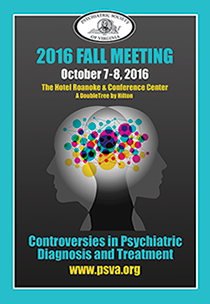Spring 2016 Issue |
Certificate of Public Need Legislation
By James Pickral
PSV Lobbyist
 |
James Pickral |
2016 General Assembly Session
One of the most contentious issues this legislative session was the potential reform of Virginia’s Certificate of Public Need program. Budget language in 2015 had directed Secretary Hazel to form a workgroup to review COPN and make recommendations on reform. The workgroup met several times in the interim. The workgroup’s report was mainly focused on improving the administrative process and did not recommend removing any major services from requiring a COPN. As a result, there were numerous bills this session on this topic- ranging from workgroup recommendations to full-out repeal of the program. The following COPN bills were all introduced this year:
- HB 59 (Byron): Certificate of public need; definition of medical care facility.
- HB 193 (O’Bannon): Certificates of public need; creates three-phase process to sunset requirements for medical care.
- HB 347 (Byron): Laser-assisted in situ keratomileusis (LASIK) eye surgery; certificate of public need not required.
- HB 348 (Byron): Certificate of public need; exception for certain medical care equipment and services.
- HB 349 (Byron): Certificate of public need; removes requirements for certain medical care facilities.
- HB 350 (Byron): Certificate of public need; changes to Medical Care Facilities Certificate of Public Need Program.
- HB 463 (Head): Transfer of medical equipment; certificate of public need not required.
- HB 621 (Bell, Rob): Certificates of public need; requirements for certain projects involving mental hospitals, etc.
- HB 651 (Bell, Richard): Certificate of public need; increase of beds at certain facilities.
- HB 688 (Peace): Certificate of public need; requirements before commencing a project.
- HB 689 (Peace): Certificate of public need; exception for certain medical care equipment and services.
- HB 1083 (Stolle): Medical Care Facilities Certificate of Public Need Program; changes to Program, report.
- SB 333 (DeSteph): Certificates of public need.
- SB 398 (DeSteph): Certificate of public need; cataract surgery.
- SB 561 (Newman): Certificates of public need.
- SB 585 (Barker): Certificates of public need.
- SB 641 (Stanley): Certificates of public need.
The majority of these bills were combined or tabled early in session. The following bills became the main focus:
- HB 193 (O’Bannon): Certificates of public need; creates three-phase process to sunset requirements for medical care. This bill removed most services from COPN and created a permit process instead, with several quality standards.
- HB 350 (Byron): Certificate of public need; changes to Medical Care Facilities Certificate of Public Need Program. This bill included process reforms, as well as removing mental health services from COPN.
- HB 689 (Peace): Certificate of public need; exception for certain medical care equipment and services.
- This bill removed imaging, but included utilization standards, charity care requirements, and equipment registration.
- HB 1083 (Stolle): Medical Care Facilities Certificate of Public Need Program; changes to Program, report. This bill was supported by the VHHA and reflected the recommendations of Sec. Hazel’s workgroup.
Delegates O’Bannon, Byron and Peace led the efforts for comprehensive COPN reform in the House of Delegates. Delegate Stolle favored process changes instead; he carried the bill supported by the Virginia Hospital and Healthcare Association (which opposed reform). The Medical Society of Virginia supported reform legislation, as long as it included strict charity care requirements and quality of care standards.
The legislation had an uphill battle in the House of Delegates and barely made it out of the Health, Welfare and Institutions Committee. HB 193 (O’Bannon), HB 350 (Byron) and HB 689 (Peace) were the only bills to make it to the floor. Many thought that the bills would die at this point, because several Republican Delegates from Southwest were opposed to reform. VHHA then chose to air a television commercial in the Roanoke and Southwest regions directly targeting Republicans who supported reform. It was a very sensational, attack-style campaign ad and most were shocked by its content. This tactic backfired and angered the Republican caucus in both the House and Senate. As a result, HB 193 and HB 350 passed the House floor. Many legislators indicated they only voted for the bills because they were so disgusted with VHHA’s actions.
In the Senate, the Education and Health committee decided to carry over and take no action on their members’ bills and wait for the House bills to come over. Senator Newman, the chair of the committee, supports COPN reform and led efforts in the Senate to find common ground between proponents and opponents. The majority of members on the Education and Health committee opposed COPN reform and were of the opinion that getting any significant legislation out of there was close to impossible.
Senator Newman and Sec. Hazel worked together to heavily amend Del. Byron’s bill. Her bill was changed to remove imaging services, implement process changes and provide a method for hospitals to draw down federal funds. This new bill easily passed out of committee. Delegate O’Bannon’s bill was carried over to 2017, with a commitment from Senator Newman that the committee will meet in the interim and address the legislation.
The one bill left, HB 350 was heard on the Senate floor. However, because it involved revenue, Senate rules required it be referred to the Senate Finance committee. At this point, there were only a few days left of session and the deadline for revenue bills had long expired. The bill was referred back to committee, essentially killing it for the year.
While this was the end of the road for COPN reform this session, it is far from over and will definitely be a focus again next year. The Speaker of the House of Delegates has committed to carrying comprehensive reform legislation himself next year. This can be directly attributed to the actions of VHHA and it is likely the Speaker’s bill will be more far-reaching than any of the bills this year. Senator Newman has also indicated that the Education and Health committee will work over the summer and fall on legislation and be ready to go at the start of the 2017 General Assembly Session. It is safe to say that the legislative efforts to reform COPN are just beginning.





